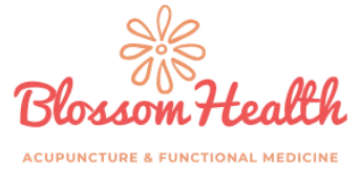A very intrinsic part of my practice involves addressing the major toxins we are subjected to on a daily basis. The number is staggering, in the hundreds. Many environmental toxins such as PCBs, xenoestrogens, GMOs, pesticides, cosmetics, and household cleaners and such are known as “endocrine dysruptors” as they can reek havoc on our hormones. This particularly comes into play with fertility and other hormone imbalances. Also, many patients come to me following multiple rounds of IVF and other protocols like Clomid, and this can impair liver function and really cause major issues with the menstrual cycle for years to come. Medications are also considered toxic. One drug is one toxin–many medications translates to numerous toxins. It is this daily exposure, cumulative over time, which has a high impact on our body’s ability to cope. Some patients don’t eat well, consuming packaged and frozen foods which are loaded with chemicals and preservatives. And many have impaired detoxification from years of stress, medications, alcohol/recreational drug intake, lack of sleep (also nightshift workers), eating on the go, pushing ourselves, overwork, and other unhealthy lifestyle patterns.
Another group of toxins are heavy metals. These include mercury, deposited in fat tissue, and lead, deposited in bone tissue. When women are menopausal and begin to lose bone density, the lead leeches out into the circulation causing inflammation and possible autoimmune conditions. Yo yo dieting is also a problem. When you lose fat mass the toxins are released causing stress hormones to respond. This can create a hypothyroid condition where it’s difficult to lose weight. It’s a vicious cycle. Constipation and respiratory factors also impair detoxification.
You may have heard of a gene called MTHFR. If you have a gene variation or mutation, it can greatly affect methylation, which is required for effective detoxification. The liver uses methylation to convert toxins into water-soluble compounds so they can be excreted. I look closely at Epigenetics–the study of how our environment determines if genes turn on and off, in my practice.
There are good food choices to help detoxification. Eating clean, organic fruits (lemon, lime, apples, berries), and cruciferous veggies like broccoli and Brussel sprouts, cilantro, spirulina and Chlorella, all act as natural chelators, helping to bond with toxins for excretion.
My solution is to prescribe a Phase 1 and Phase 2 detoxification protocol for either 14 or 21 days, which includes a delicious shake and a whole foods diet. Many cleanses or detoxes on the market do not cover both phases of detoxification. In Phase 1 the liver rounds up all of the toxins which is the simple part. Phase 2 actually is more difficult, as it requires the kidneys to excrete the toxins. Most people have issues with this second pathway. My medical-grade detox protocol helps to reduce inflammation, improve sleep and energy, regulate hormones, and helps someone feel good again. A natural bi-product of this cleanse is that most people lose weight–some have lost 21 pounds in 21 days, although this is not the intent of the detox.
